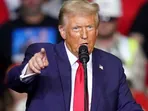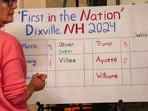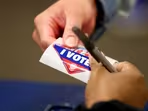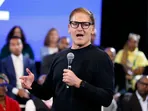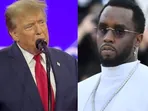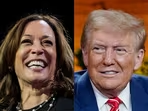Ecuadorians head to the polls just weeks after presidential candidate assassinated
Ecuadorians will choose a new president Sunday, less than two weeks after the South American country was shaken by the assassination of one of the candidates — a crime that laid bare people's fears over unprecedented violence in their once-calm nation.
The winner faces a universal demand for safety, but how the incoming administration will fund crime-fighting promises remains to be seen. Much of the country's increasingly polarized society yearns for the prosperity seen under the presidency of Rafael Correa, now a fugitive from Ecuadorian justice, but few readily acknowledge it left the country with a huge fiscal deficit and billions in debt.
Sunday's ballot has the names of eight candidates, including Fernando Villavicencio, the anti-corruption crusader who was killed Aug. 9 while leaving a campaign rally in Quito, the capital. His was the third and most prominent in a string of killings of political leaders this year.
Voting in Ecuador is mandatory for people ages 18 through 64.
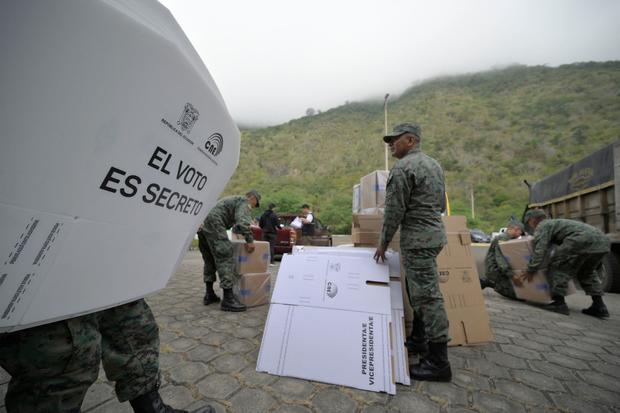
Fears of violence in the wake of Villavicencio's assassination could "reduce turnout because of people's fear of even going out to vote," said John Walsh, director for drug policy and the Andes at the Washington Office on Latin America think tank.
Some voters could choose to just pay a fine of roughly $45 rather than risking a trip to the polls.
Villavicencio, a former journalist, was outspoken about the links between organized crime and government officials.
"Certainly," responded Florida International University political science professor Eduardo Gamarra when asked by CBS News if that outspokenness may have lead to his death. "And one of the most notorious and prescient things that he said, that he always said, is that it would cost him his life."
Gamarra, an expert on Latin America, said Ecuador has long been known as one of the most peaceful nations in South America. But it is now becoming more violent, dangerous and deadly. He said the country's transformation is similar to that of Colombia during the height of the Columbian drug wars in the 1980s and 1990s, when journalists, judges and even a presidential candidate, Luis Carlos Galan, were murdered.
"In Ecuador, what you have is this enormous presence of transnational organized crime," Gamarra said. "For such a small country to have such a concentration, because it's so small, it may even be worse."
Emilio Palacio, an exiled Ecuadorean journalist living in Miami, was a friend of Villavicencio.
"It wasn't that he had a lot of enemies," Palacio said. "It's that they were powerful."
Ecuadorian authorities attribute the country's spike in violence over the past three years to a power vacuum triggered by the killing in 2020 of Jorge Zambrano, alias "Rasquiña" or "JL," the leader of the local Los Choneros gang. Members carry out contract killings, run extortion operations, move and sell drugs, and rule prisons.
Los Choneros and similar groups linked to Mexican and Colombian cartels are fighting over territory, drug-trafficking routes and control, including within detention facilities, where at least 400 inmates have died since 2021.
In Guayaquil, the port city that has been the epicenter of violence, fair vendor Dalia Chang said residents' fears for their safety kept people at home during a long holiday weekend through Sunday. Chang, 59, said she expected more sales, but her booth in a popular entertainment district was practically empty.
"People are afraid of going out, going to places, restaurants. We are living in the midst of terrible crime," Chang said. "We can't go anywhere because we are worried."
Candidates promised throughout the campaign to give law enforcement more weapons, equipment and training and more resources for investigation. Their tough-on-crime proposals also include cleaning up police ranks and increasing control along the borders with Colombia and Peru, the world's top cocaine producers.
While organized crime groups appear to have endless cash to pay for guns, bribes and more, the government is on a tight budget. The election winner will only govern 18 months but will inherit a fiscal mess in part due to declining revenues from tax collection and oil exports — on which the country largely depends.
Data from the Ministry of Finance show state coffers received $991 million from oil between January and July. That's less than half than the $2.3 billion the state received during the same period last year. Meanwhile, tax collections this year fell by $137 million.
Jaime Carrera, an analyst with Ecuador's Fiscal Policy Observatory, estimated that the incoming administration will need more than $10 billion annually in fiscal financing when the general budget is $31.5 billion.
Sunday's snap election was called after President Guillermo Lasso, a conservative former banker, dissolved the National Assembly by decree in May, to avoid being impeached over allegations that he failed to intervene to end a faulty contract between the state-owned oil transport company and a private tanker company.
Six Colombian men were arrested last week for their suspected involvement in the killing of Villavicencio, who was an independent journalist and investigated corruption in previous governments before entering politics as an anti-graft campaigner. One of his investigations led to Correa being sentenced in absentia to an eight-year prison term on corruption charges.
Correa's protégé, Luisa González is the front-runner and plans to make Correa her adviser if she wins.
To win outright, a candidate needs 50% of the vote or at least 40% with a 10-point lead over the closest opponent. If needed, a runoff election would take place Oct. 15.
Electoral authorities on Wednesday approved the presidential candidacy of journalist Christian Zurita for Villavicencio's party, but the ballots will still have the late candidate's name because they had already been printed. González had challenged the substitution.
Candidates increased their security measures after Villavicencio's killing. Daniel Noboa wore a bulletproof vest during last weekend's debate. Zurita wore one too Wednesday during a news conference.
Local media reported that Noboa, his team and a National Assembly candidate were rattled Thursday by a shooting that took place as they entered a community separated from Guayaquil by a river. Shootings are frequent in Duran, where settlements house some of the area's poorest citizens.
The Assembly candidate, Jonathan Parra, tweeted they were uninjured. Interior Minister Juan Zapata later tweeted that authorities had "ruled out an armed attack" against Noboa.
Supporters of millionaire candidate Jan Topic, whose promise of heavy handed tactics against criminals have earned him the nickname "Ecuadorian Rambo," were bused to a campaign rally Thursday at the convention center in Guayaquil. They left purses and backpacks in the buses and went through makeshift gates manned by private security guards to enter.
Organizers kept journalists away, and guards barred an Associated Press reporter from interviewing attendees.
Zapata said more than 100,000 police and military officers are being deployed to secure the election process. He said the only restriction people will face Sunday when voting will be the inspection of backpacks.
Diana Atamaint, the president of the National Electoral Council, said law enforcement is "working to safeguard, above all, the lives of Ecuadorians, so that… we can all exercise our right to vote."
- In:
- Elections
- Ecuador
Disclaimer: The copyright of this article belongs to the original author. Reposting this article is solely for the purpose of information dissemination and does not constitute any investment advice. If there is any infringement, please contact us immediately. We will make corrections or deletions as necessary. Thank you.
Title:Ecuadorians head to the polls just weeks after presidential candidate assassinated
Url:https://www.investsfocus.com


